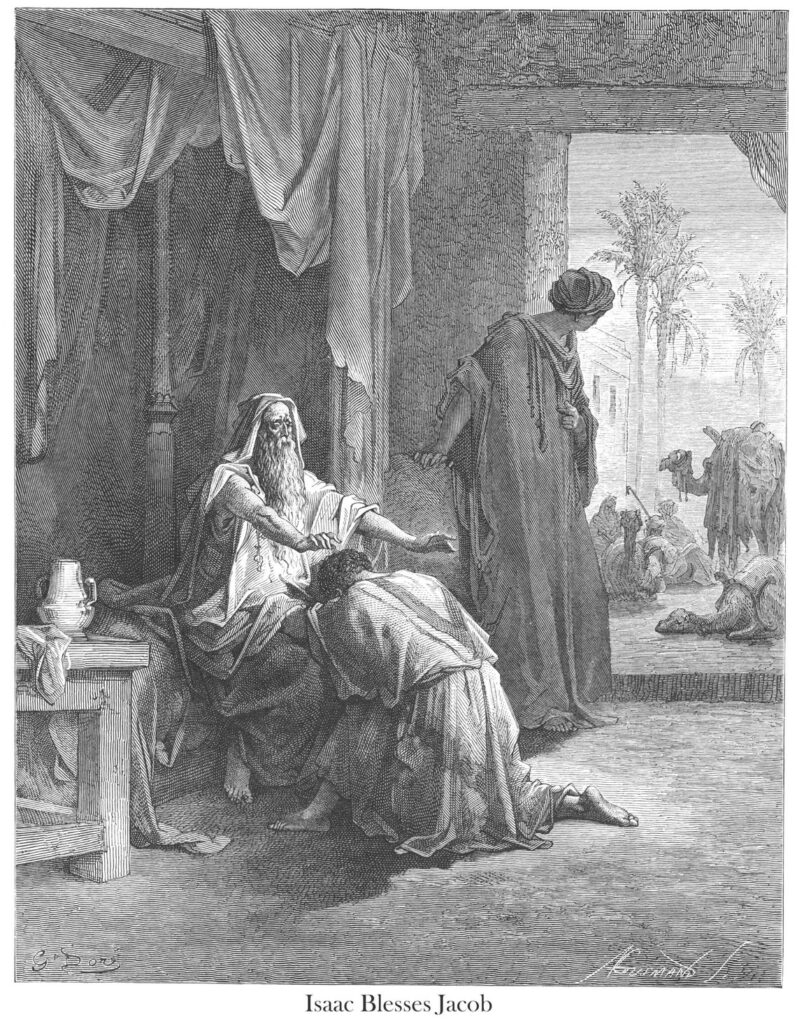As I have been reading my way through Genesis, I came upon Genesis 27:27 in which, in the middle of a chapter focused on blessing, we read that God blesses fields.
The drama of the moment comes from Isaac blessing Jacob when he seemingly intends to be blessing Esau. This holds the reader’s mind and heart. It held mine. Then, in this verse which begins Isaac’s blessing of Jacob, Isaac says something remarkable. He says, “See, the smell of my son is as the smell of a field that the LORD has blessed!”
It’s so easy to just keep on reading because of the Jacob-Esau drama.
I’ve done so many times. It’s so easy to overlook.
But this time the phrase caught my eye. I saw it anew.
What does it mean? What would God’s blessing of a field look like? What would a blessed field smell like?
In the story, Jacob is wearing the best garments of Esau who was a skilled hunter and “a man of the field.” So, presumably, Esau’s clothing smelled of the outdoors. Of wind and sun. Soil. Flowers. Soil. Dung. Perhaps of animals he had caught and carried. Complex odors of the outdoors. Creation.
Our tendency here is to focus on the deception taking place and to think of the reference to the odors only in connection with the deception. In fact, in my online research, I could find no commentary or reference that actually focused on the concept of God blessing fields.
You could make the argument that Isaac’s words in this verse are a rhetorical flourish. They transtion us smoothly into the next verse in which Isaac declares that Jacob will receive the dew of heaven and the fatness of the earth and plenty of grain and wine. You could make the argument that that is all this phrase is.
But I can’t just flick the significance of this verse away so easily. I’ve meditated on this for awhile and come away with two simple conclusions.
First, landscapes are blessed by God. I don’t know exactly what that means. Does that mean there are landscapes that aren’t blessed or receive lesser blessings like Esau did in the end? I don’t know.
But what we do know is that humanity is not the only element of Creation that God cares about. This is another reminder of that. Interestingly enough, the first blessing of the Bible comes in Genesis 1:22. It is not God blessing humanity. It is God blessing the life of the waters and the birds. So the idea of God lavishing attention on the life of this world is not new.
And that leads to the second point – if we are paying attention, we see that the life of God’s earth is part of the thread of the Biblical narrative, even the crucifixion.
This is yet another. The whole 27th chapter of Genesis is centered on who Isaac will bless first and the drama that follows. In this chapter about blessing, verse 27 serves as a small but strategic reminder. It reminds us that Creation is, from Genesis to Revelation, part of the arc of the Story of God’s intentions and work. This, in my mind, is ultimately about the unity of all things through Jesus that is mentioned in Ephesians 1:7-10.
You may be saying to yourself – is this reading too much into this verse? Is Nathan reaching here?
I’ve asked myself that question.
This is where the BibleProject has helped me. This non-profit ed-tech organization and animation studio helps people understand the literary design and core themes of the Bible in creative, clear ways.
In one of their booklets, they state their thesis – “The Bible tells one expertly crafted story from beginning to end.” Later, in the same booklet, they explain what that story is. “It’s a beautiful story about God’s plan to restore humans to their lost calling through the life, death, and resurrection of Jesus.”
It’s pretty clear to me that Genesis 27:27 could so easily have been written without a reference to God blessing a field.
But it wasn’t.
And in light of the careful, artful writing and editing of the Bible, we can’t believe that was an accident. Or a throwaway line.
Genesis 27:27 is, I believe, yet another intentionally placed signpost in the Bible. It is a signpost that reminds us that the life of God’s earth matters to God. I have experienced, as I know you have, the awe, fear, and reverence of God through encounters with Creation. Those encounters are also signposts of truth.
All of those signposts point us towards one of our lost callings.
That lost calling is for us to live out our human exceptionalism in the way God intended. This means enabling Creation to foster, keeping God’s earth like we would keep our own family.
P.S. When was the last time you smelled a field or a forest or some other landscape full of God’s life? Make a point of making that happen in 2022.
P.P.S. The story of the Jacob and Esau is far more complex and interesting than I originally realized. This essay by David J. Zucker about whether Jacob’s deception of his father was really the main deception going on is very provocative. And this thesis by Il-Sueng Chung gave me a whole different understanding of Esau. How often the Bible rewards close and careful reading!





